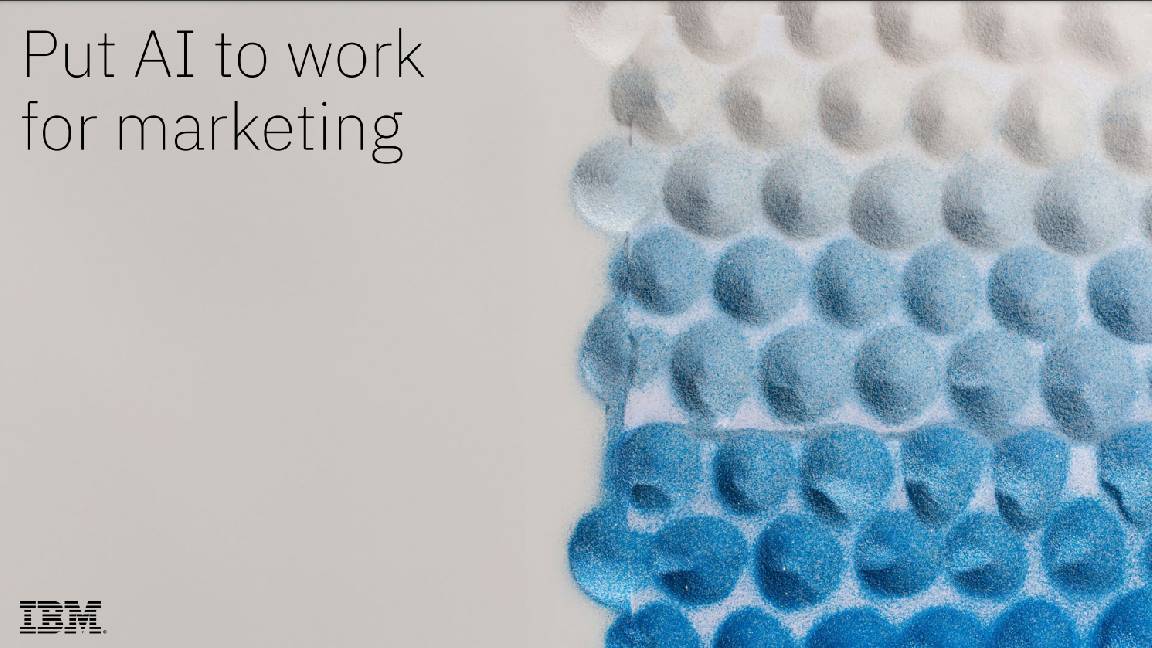So you introduced an AI chatbot for customers — here’s why they probably hate it
Firms rushing to introduce AI chatbots could be harming their relationship with customers – but the technology itself isn't the issue, it's how it's implemented


AI chatbots could be clogging up your customer care process, research suggests, with consumers going so far as to use 'hacks' to get around using automated customer service agents.
ServiceNow’s Consumer Voice Report for 2024 found the litany of AI chat interfaces being used to replace human customer service representatives are frustrating consumers.
ServiceNow surveyed 2,000 consumers across the UK, asking them about their behaviour and what they look for from a good customer experience.
The research revealed 77% of consumers had resorted to looking up tips and hacks to try and avoid automated customer service systems and speak to a human to get their issue resolved.
Consumers reported similar struggles with phone menus, with three-quarters admitting they regularly press no buttons with the hope that they will be redirected to a customer service representative.
ServiceNow noted the lengths consumers said they were willing to go to in order to get around frustrated automated service agents, finding that 49% of respondents had posted advice on how to sidestep automated responses online.
The survey results show the vast majority of consumers (85%) ‘demand’ a range of options from chatbots to phone calls and emails, with 40% of consumers explaining they don’t want to deal purely with AI to protect jobs from being replaced.
Get the ITPro daily newsletter
Sign up today and you will receive a free copy of our Future Focus 2025 report - the leading guidance on AI, cybersecurity and other IT challenges as per 700+ senior executives
Pushback against AI chatbots should be a “wake up call” for businesses
Speaking to ITPro Gregor Hofer, CEO of AI software firm Rapport underscored that the problem here is not necessarily with AI as a technology, but how it was implemented.
"The ServiceNow report highlights a crucial point: businesses are still struggling to get customer experience right in the age of AI. But let's be clear - the issue isn't with AI itself, it's with poor implementation and misaligned strategies, he explained”
“First, let’s address the elephant in the room: 77% of consumers trying to bypass automated systems is a wake-up call. It doesn't mean AI is inherently bad for customer experience; it means we're not using it correctly.”
Hofer outlined his vision of a smart implementation strategy for AI in customer service roles, taking simpler tasks off the hands of human operatives and freeing them up to tackle more complex queries.
RELATED WHITEPAPER

“The key is understanding that AI chatbots should enhance, not replace, human interaction. They're not meant to be a barrier between customers and human agents. Instead, they should be the first line of support, make the customer feel welcome and handle simple queries efficiently, while freeing up human agents for more complex issues,” he argued.
“In our experience, AI doesn't replace human agents - it empowers them. By handling routine queries, AI allows human agents to focus on high-value interactions where empathy and complex problem-solving are crucial. This actually elevates the role of human customer service agents, making their jobs more rewarding and impactful.”
Hofer concluded that the best applications of AI understand its limitations, and the technology can play a pivotal role in improving customer experiences as long as businesses take this into account and don’t treat it as a panacea for cutting costs.
"Finally, it is important that within this implementation of AI, we know when to pass the baton. Use AI to quickly identify complex or emotionally charged situations and route them to skilled human agents. It's about using the right tool for the right job,” he stated.
“The future of customer service isn't about choosing between AI and humans - it's about creating a symbiotic relationship between the two. When implemented correctly, AI chatbots don't hurt customer experience; they elevate it to new heights of efficiency and personalisation.”

Solomon Klappholz is a former staff writer for ITPro and ChannelPro. He has experience writing about the technologies that facilitate industrial manufacturing, which led to him developing a particular interest in cybersecurity, IT regulation, industrial infrastructure applications, and machine learning.
-
 Bigger salaries, more burnout: Is the CISO role in crisis?
Bigger salaries, more burnout: Is the CISO role in crisis?In-depth CISOs are more stressed than ever before – but why is this and what can be done?
By Kate O'Flaherty Published
-
 Cheap cyber crime kits can be bought on the dark web for less than $25
Cheap cyber crime kits can be bought on the dark web for less than $25News Research from NordVPN shows phishing kits are now widely available on the dark web and via messaging apps like Telegram, and are often selling for less than $25.
By Emma Woollacott Published